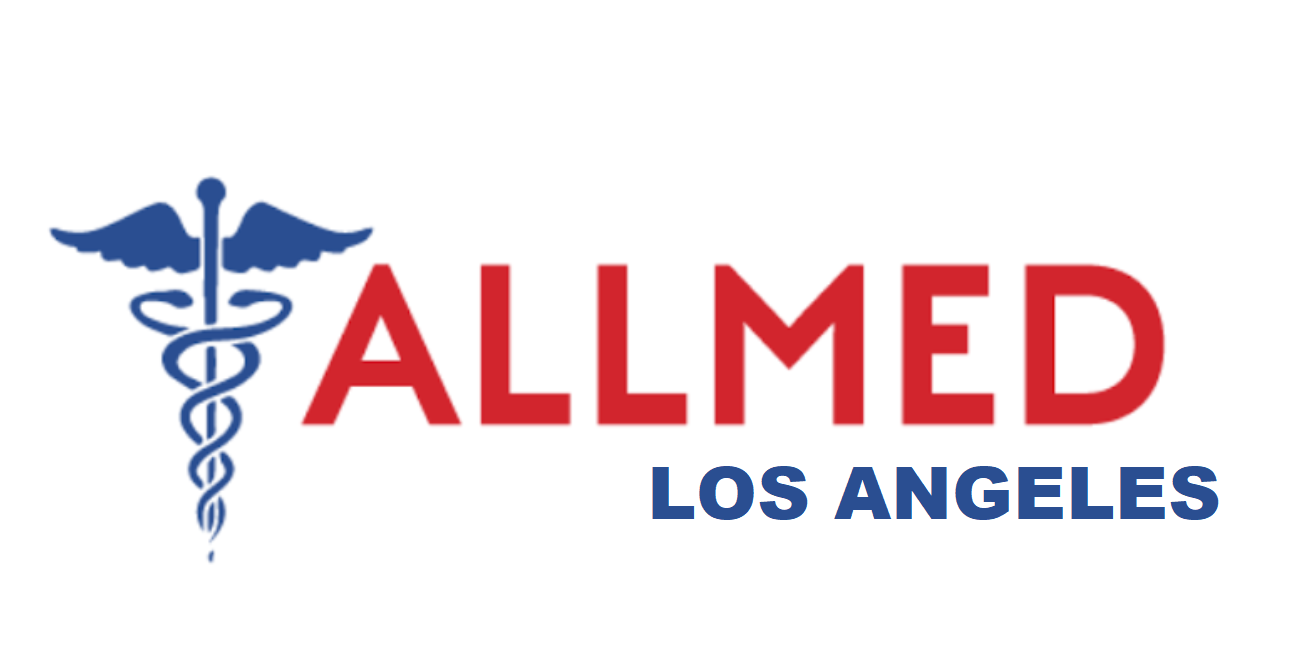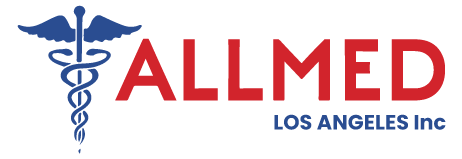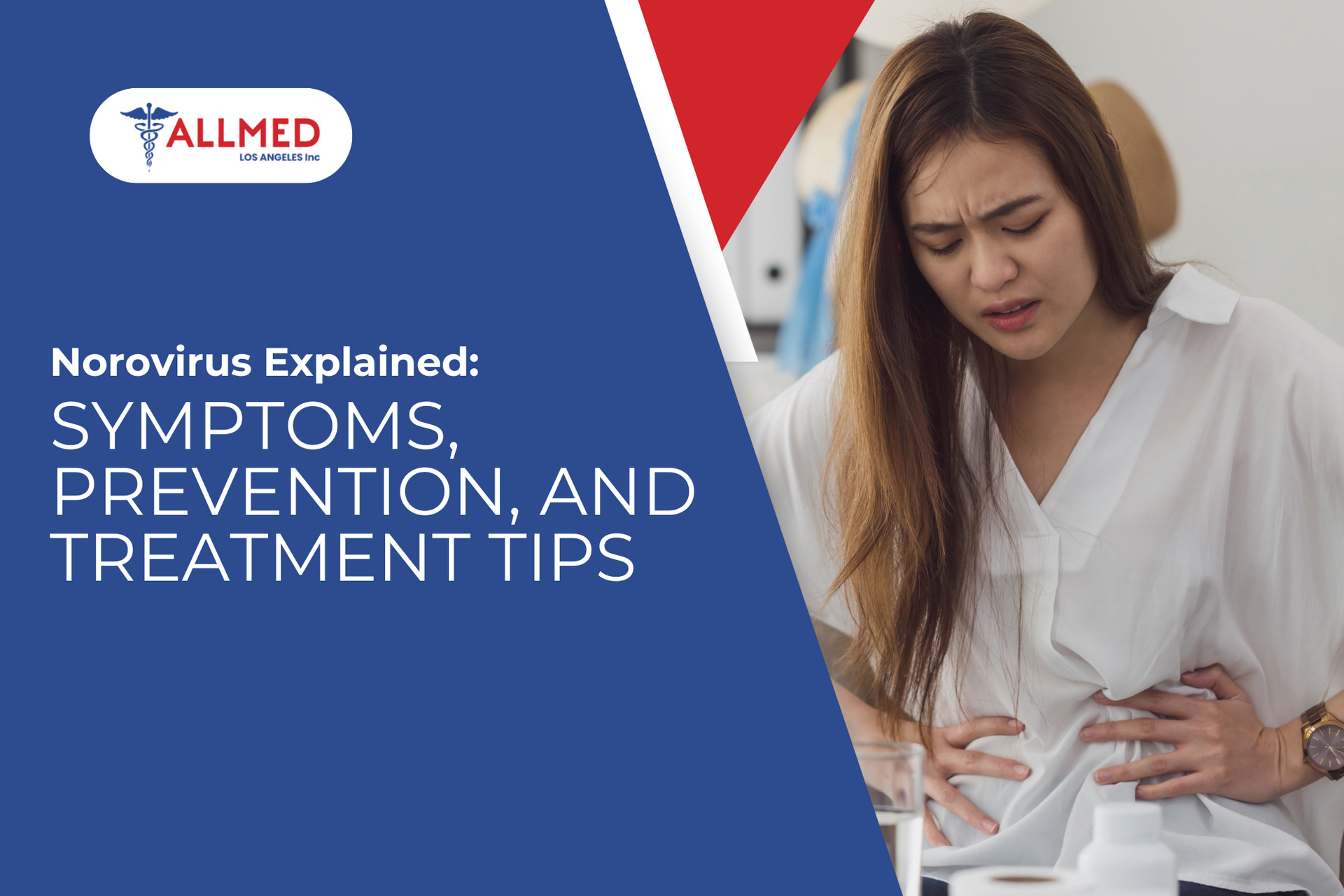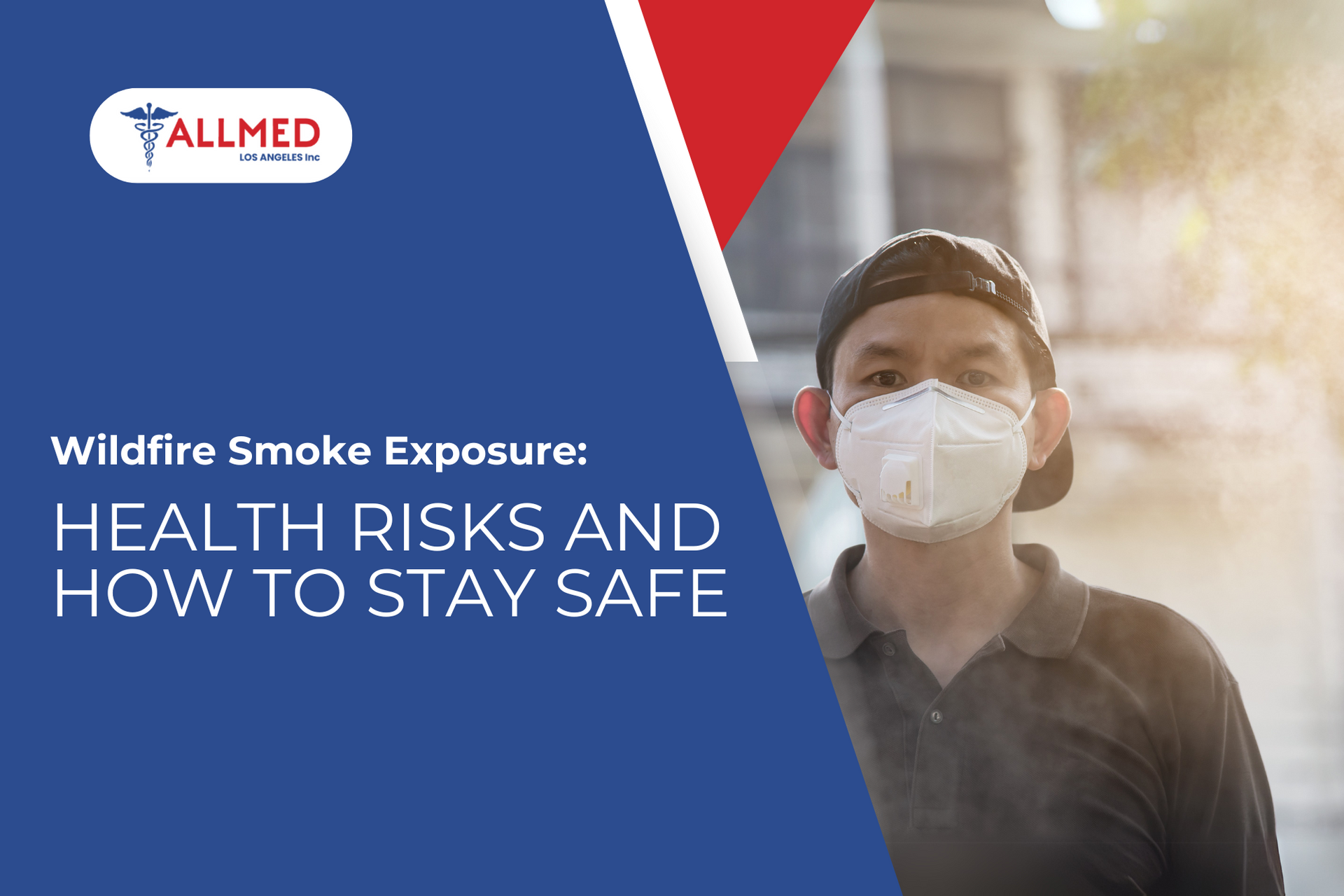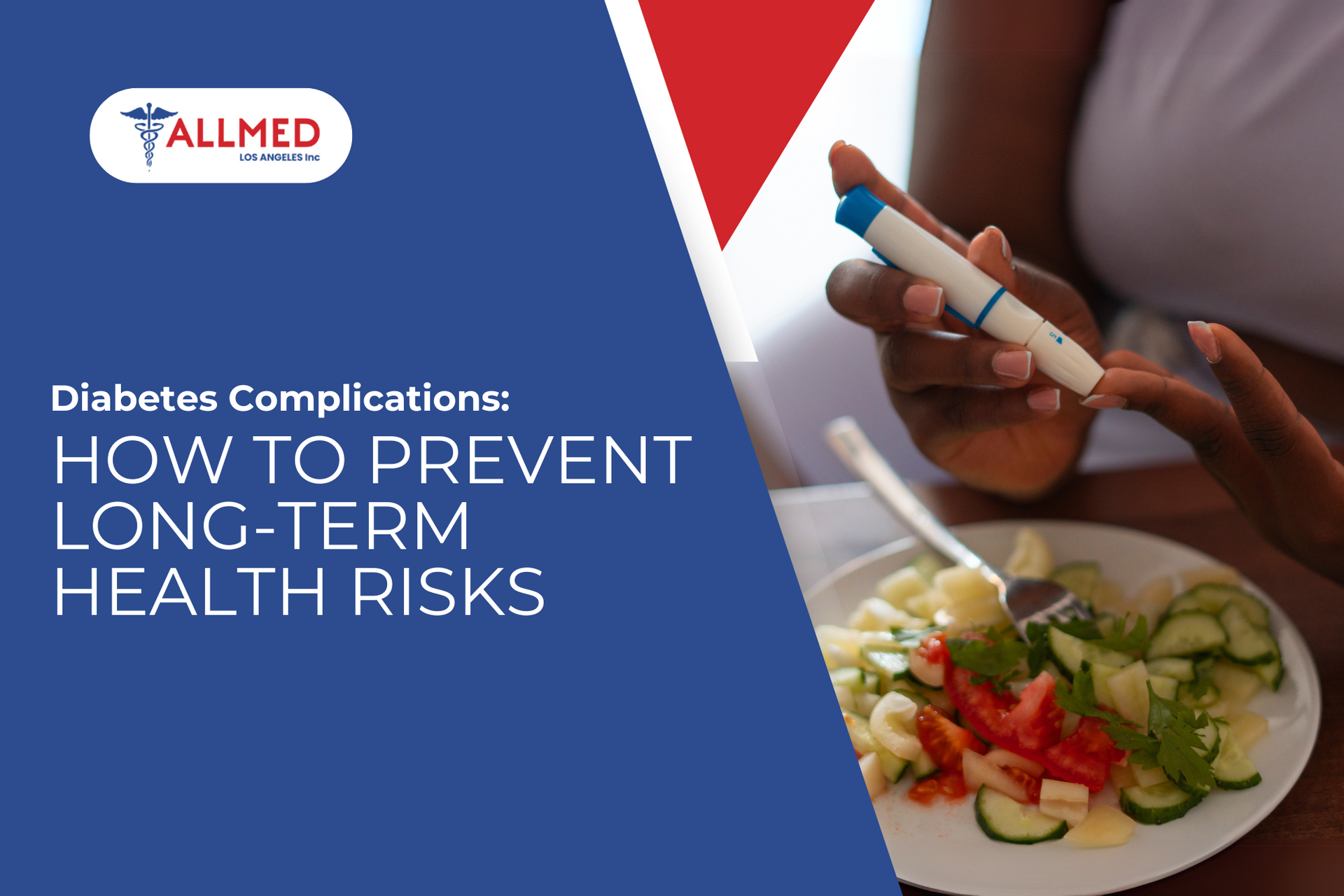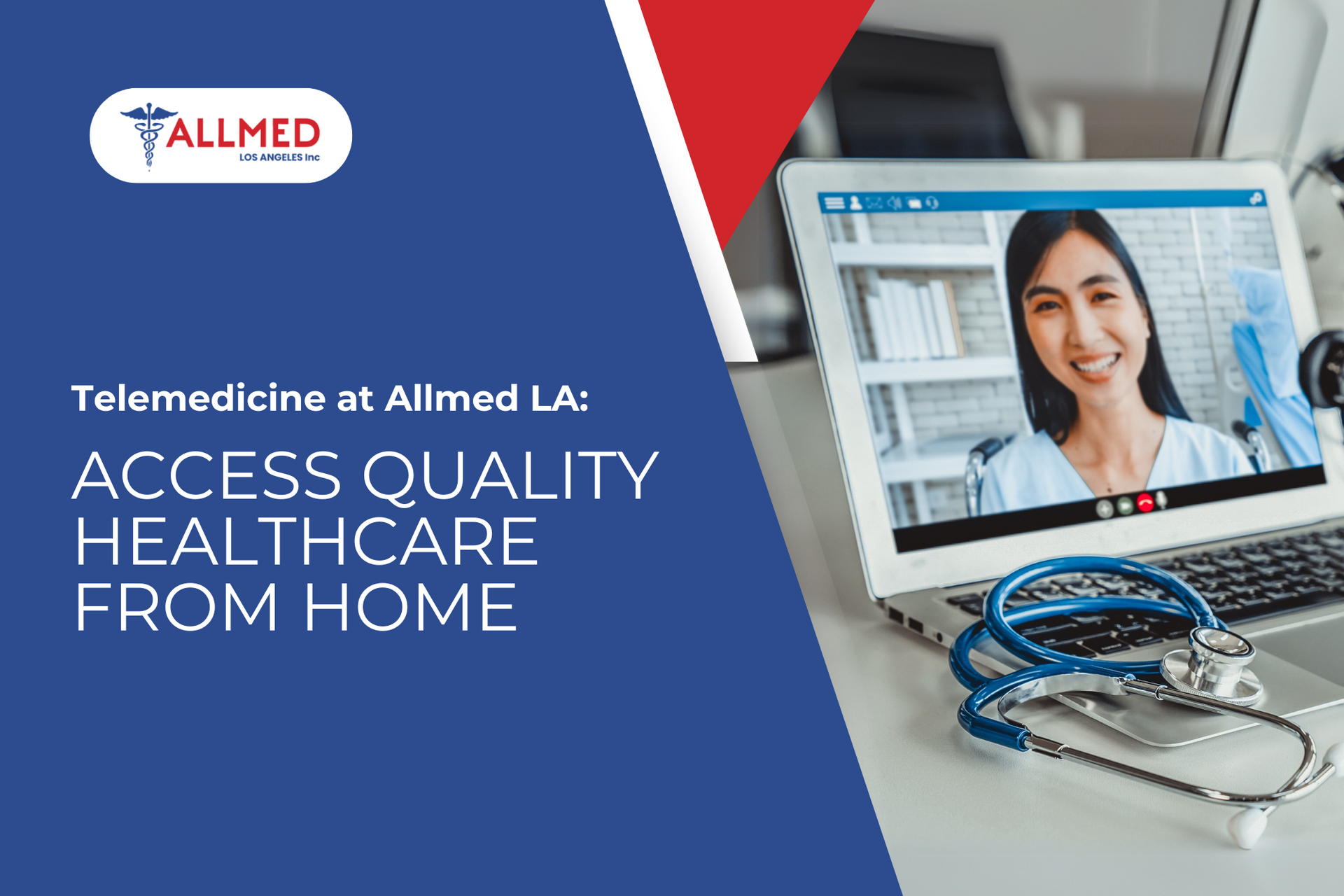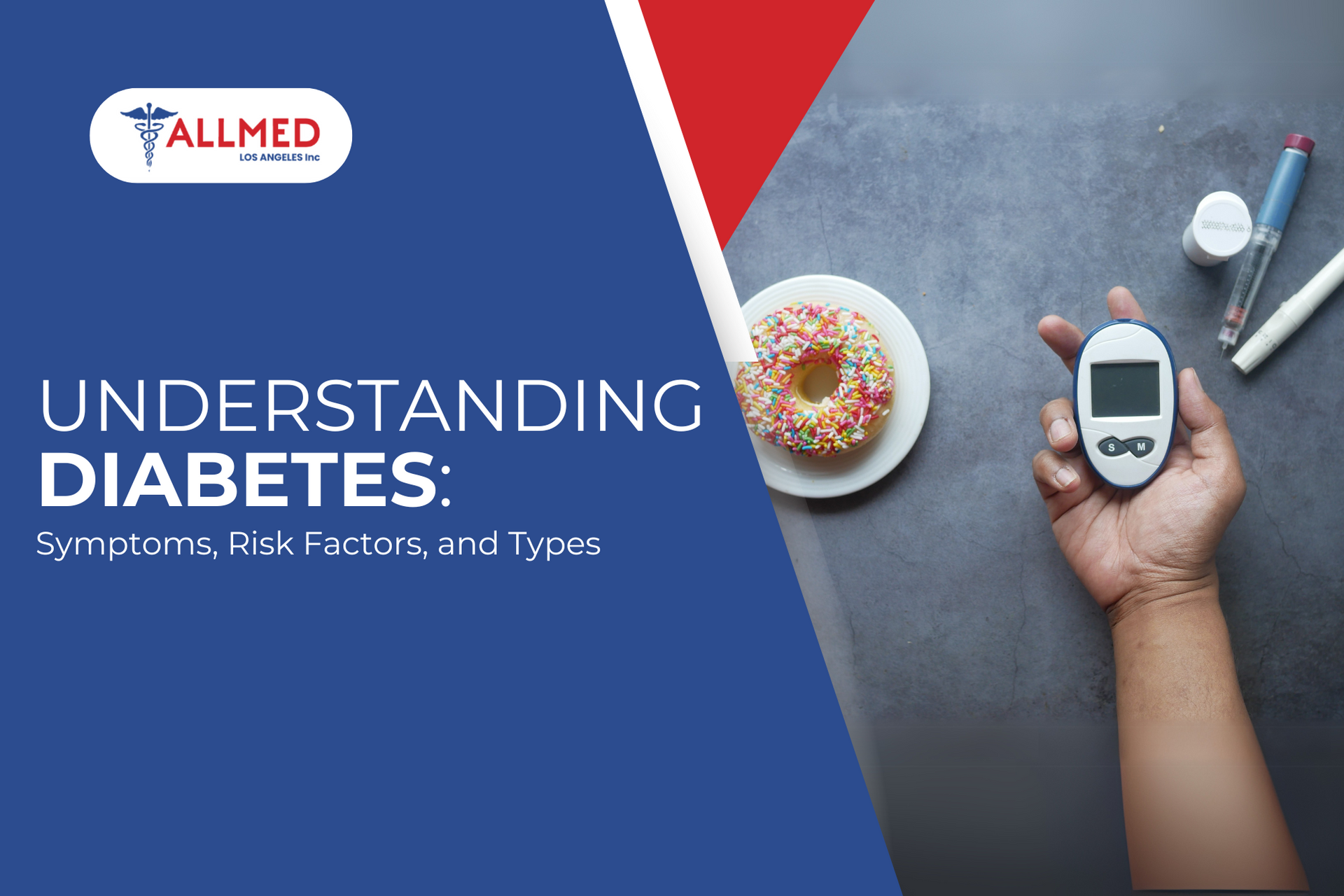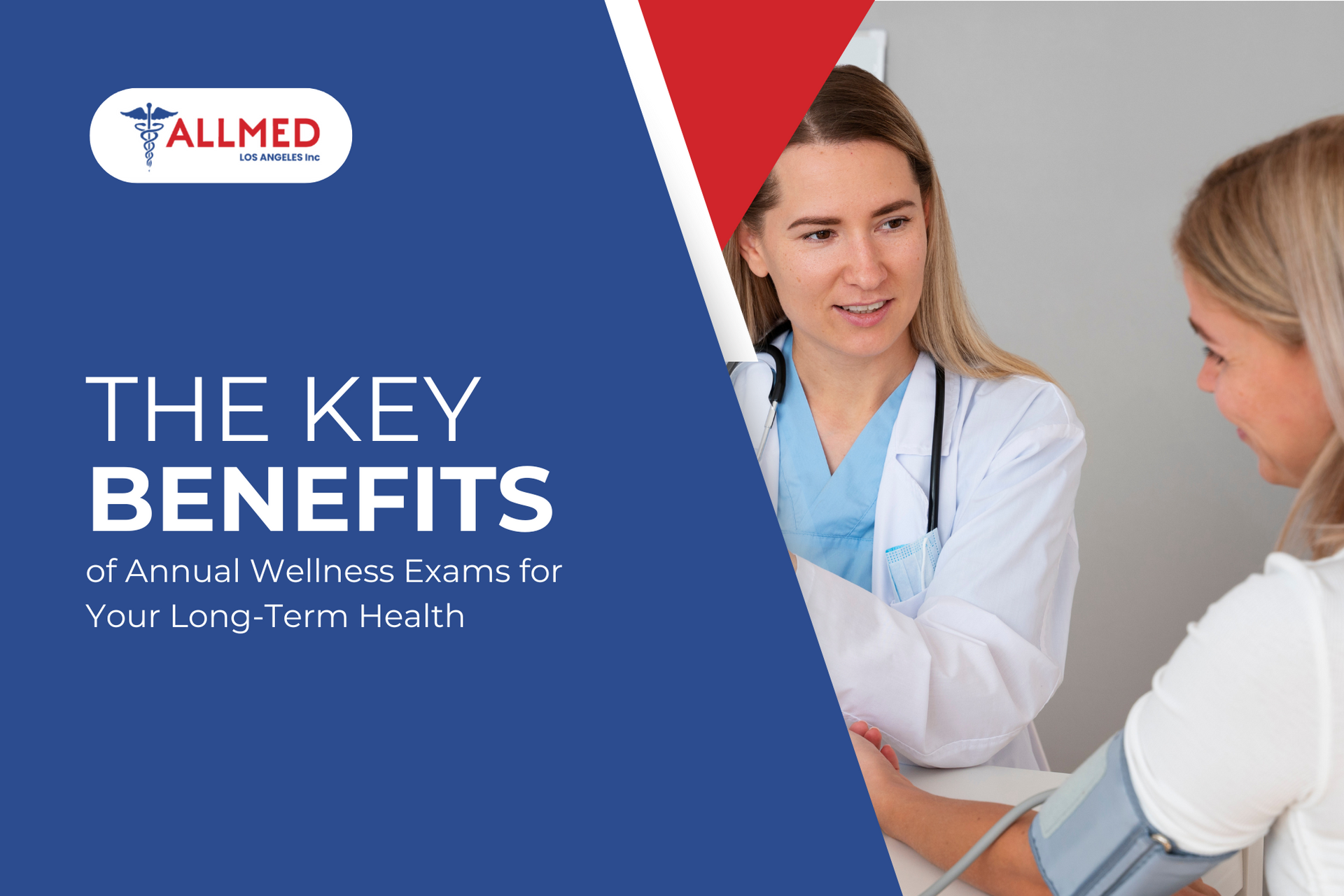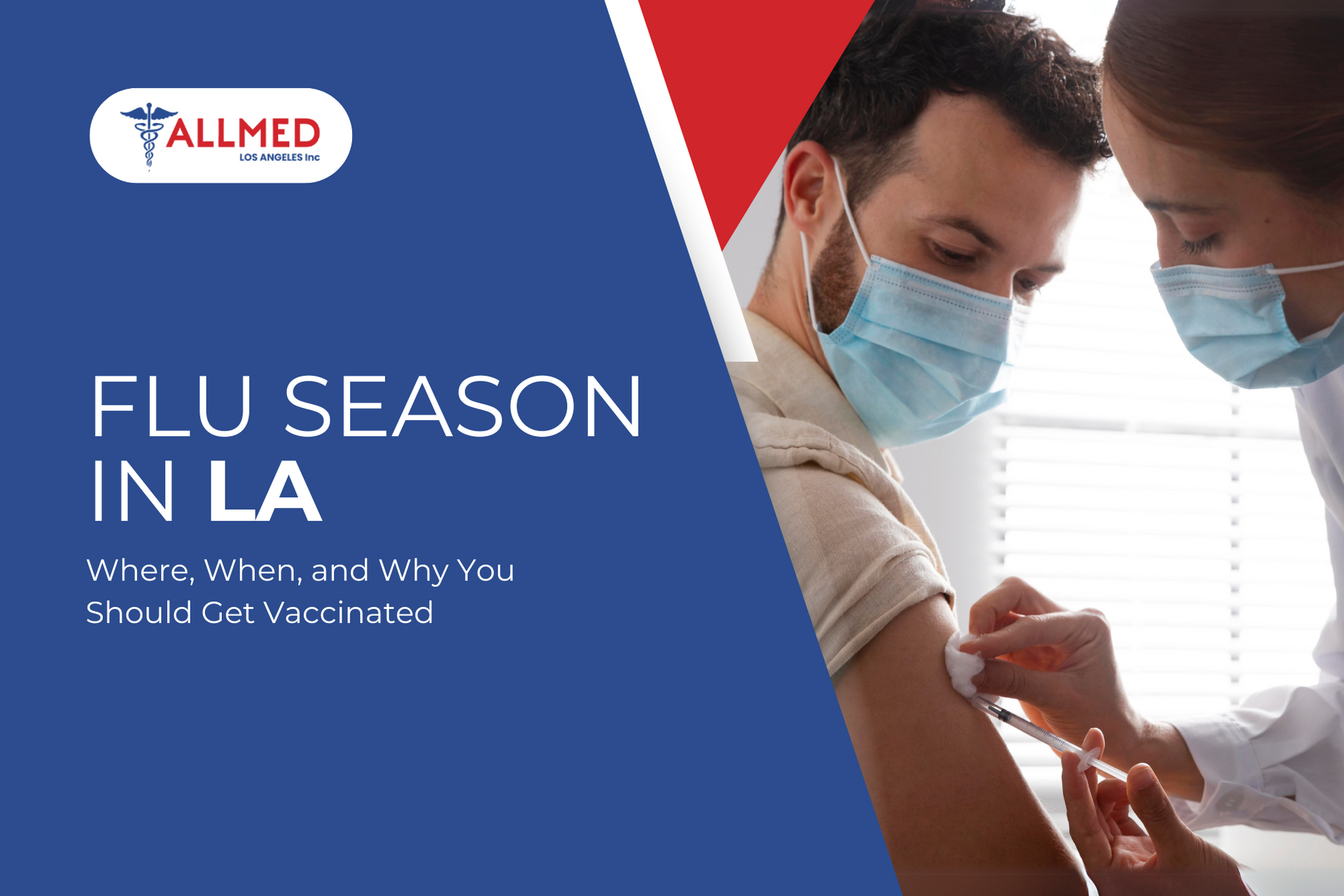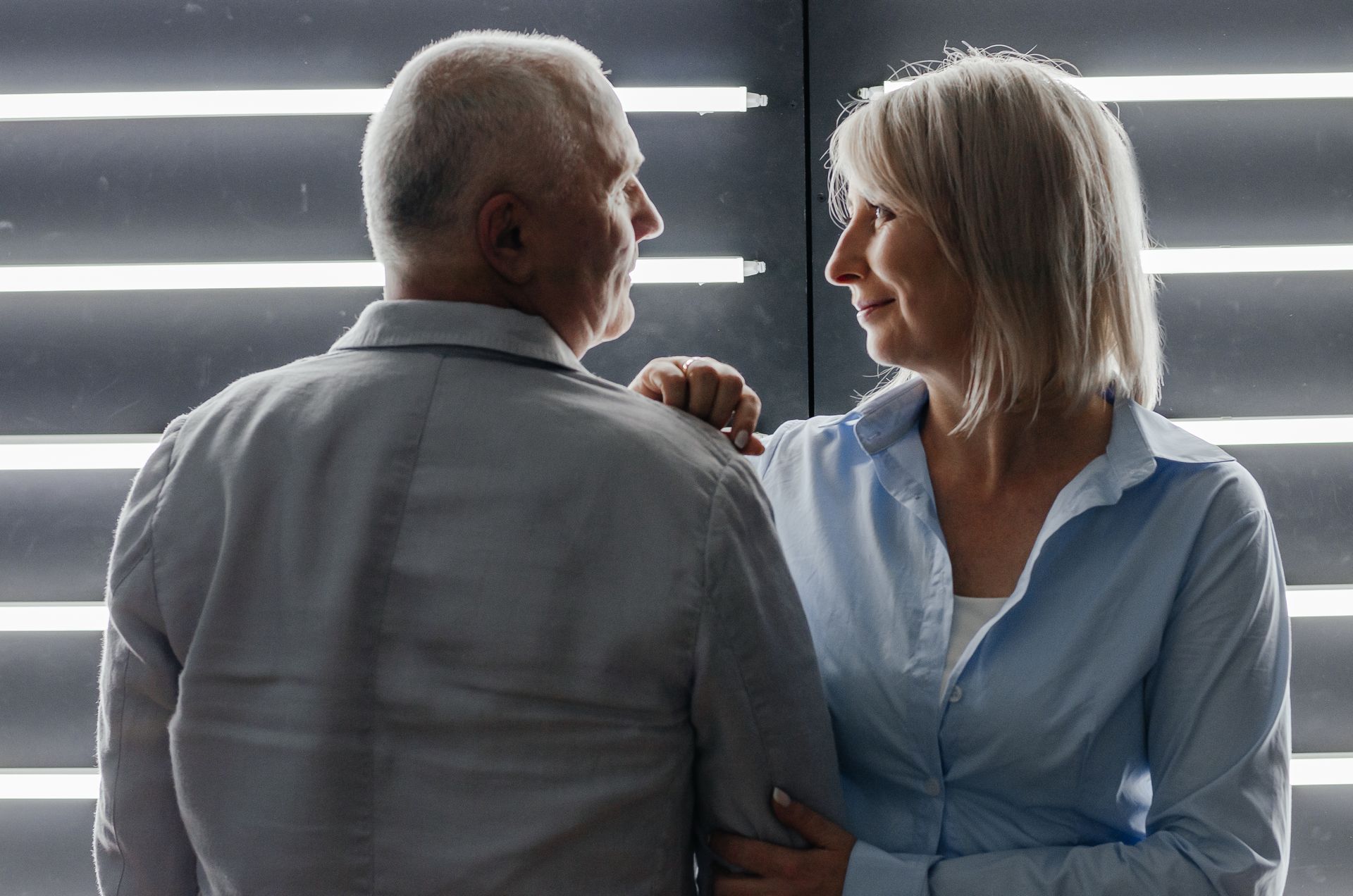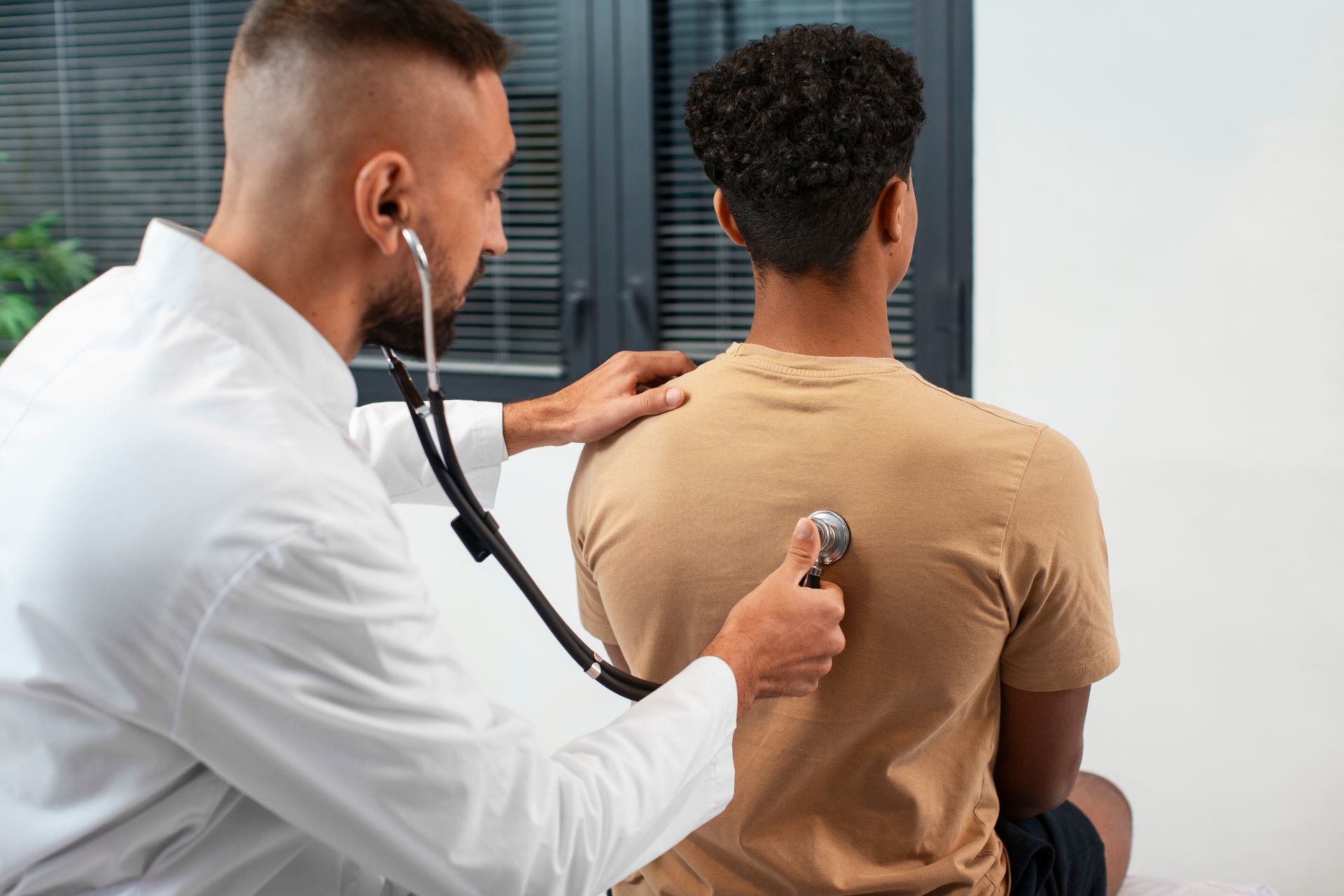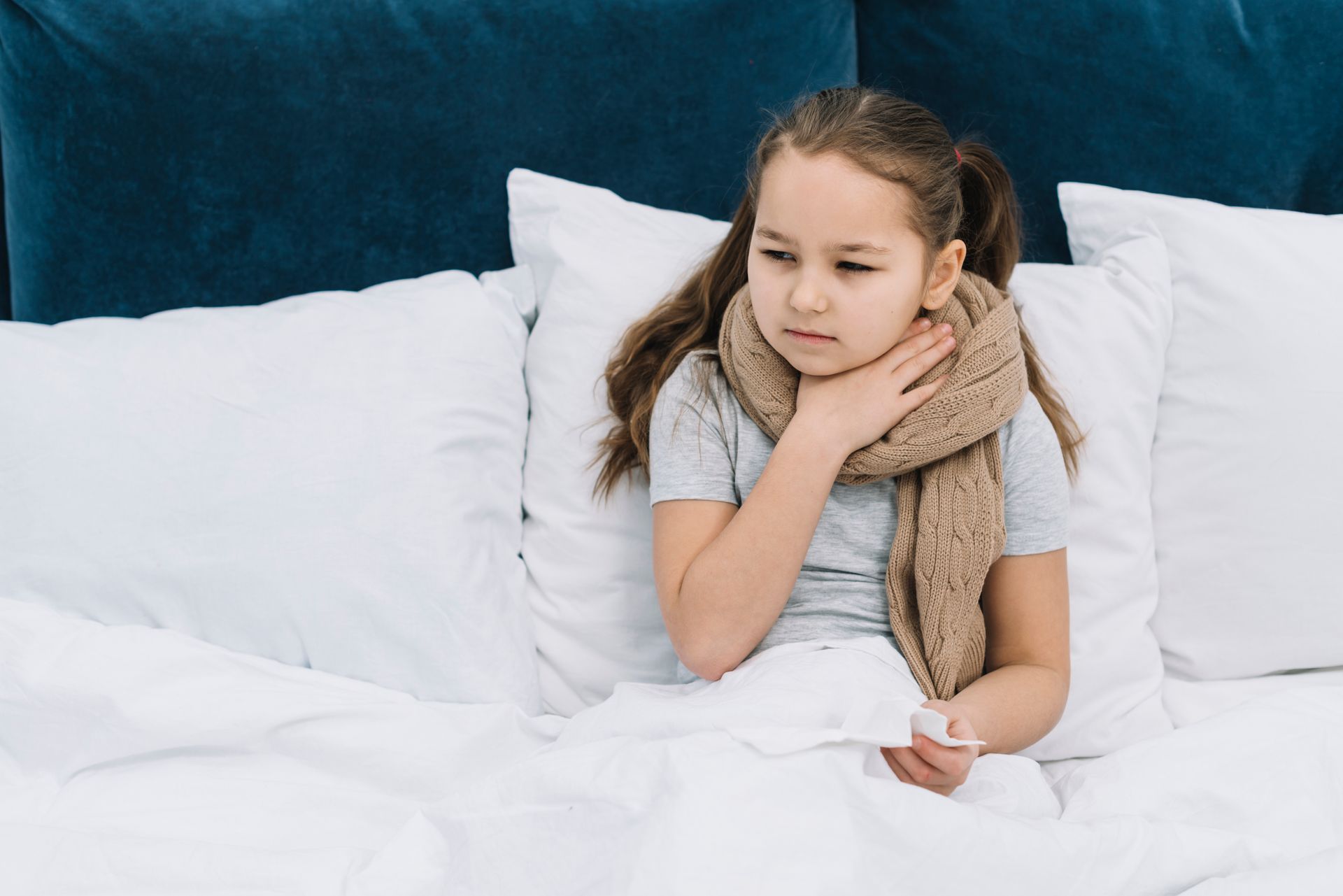RSV Symptoms Explained: A Guide to Prevention and Treatment
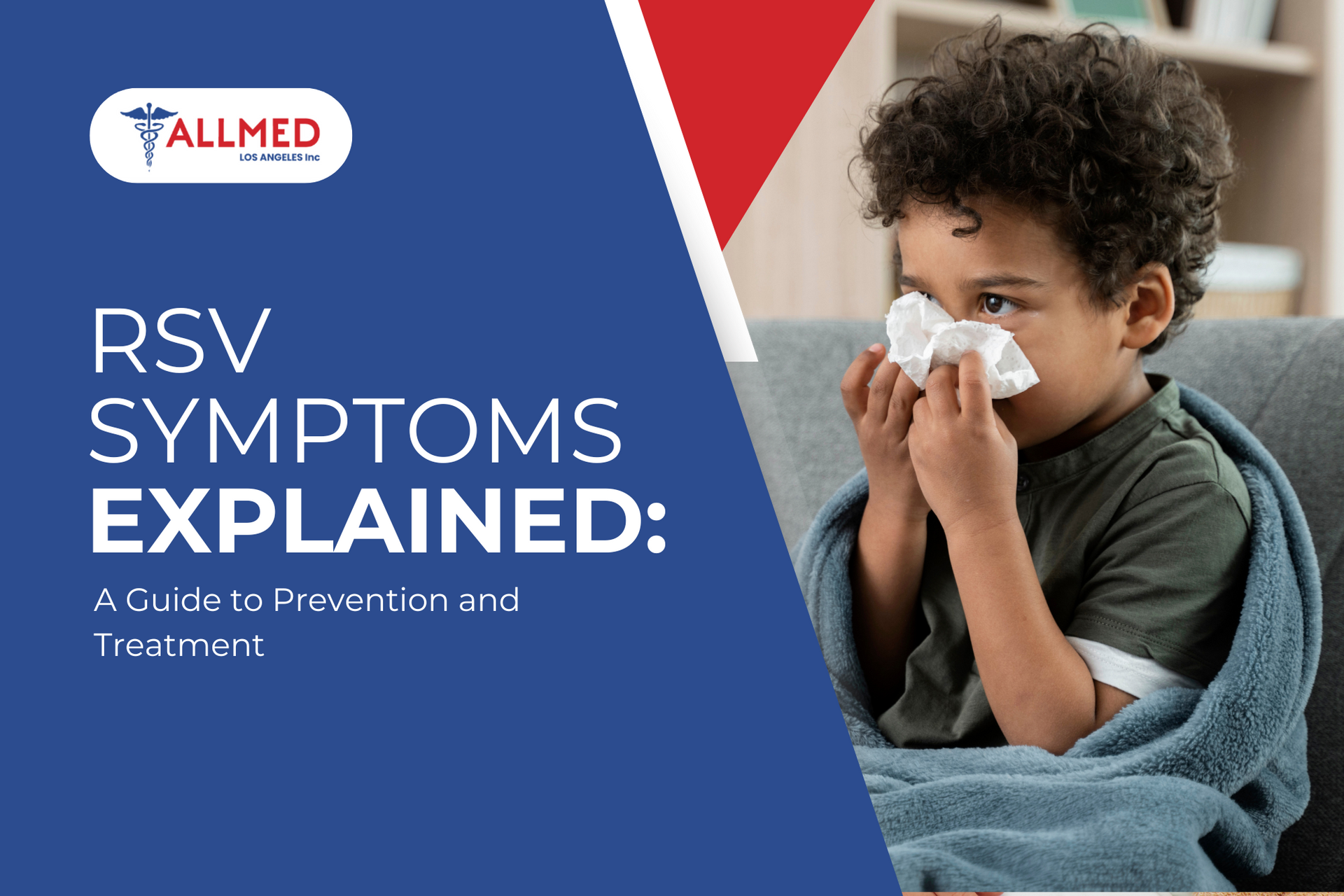
A cough here, a runny nose there—what starts as a common cold could actually be Respiratory Syncytial Virus (RSV), a virus with potentially severe consequences for infants, seniors, and those with weakened immune. Without the proper knowledge and preparation, RSV can turn from a manageable illness into a severe condition that requires hospitalization.
This blog provides an in-depth look at the signs and symptoms of RSV, treatment options, and proven prevention methods.
Help Your Family Stay Safe & Get Vaccinated against RSV at Allmed LA
What Is RSV?
Respiratory syncytial virus is a highly contagious virus that primarily targets the respiratory system, affecting the lungs and breathing passages. It passes through tiny droplets in the air when an infected person sneezes or coughs or via surfaces they’ve contaminated.
While anyone can contract RSV, certain groups face a higher risk of severe illness:
- Infants less than six months old and those who are born prematurely
- Children diagnosed with neuromuscular diseases like muscular dystrophy
- Children who are American Indian and Alaska Native
- Seniors, especially those aged 65 and older
- Individuals with chronic medical conditions like asthma, heart disease or diabetes
- Adults and children who are immunocompromised from illnesses such as cancer or medical therapies like chemotherapy.
RSV cough typically peaks during the fall and winter, coinciding with the flu season. Staying vigilant during this period reduces the risk of exposure to the virus.
How Common is RSV?
The RSV virus is so widespread that the majority of kids contract it before turning two. According to the Centers for Disease Control and Prevention (CDC), RSV annually results in the hospitalization of 58,000 to 80,000 children under five years old in the U.S.

What Are the Symptoms of RSV?
Signs and symptoms of RSV can range from mild to severe and often mimic those of a cold or flu. Here are the common RSV symptoms in adults and children you need to look out for. Remember, early detection is crucial to prevent complications.

When it comes to babies, they often exhibit additional symptoms. Since they can't communicate how they're feeling, parents and caregivers need to watch for the following RSV symptoms in babies:
- Irritability or lethargy
- Shallow, fast-paced breathing
- Difficulty feeding
- Apnea (pauses in breathing)
Signs of dehydration such as infrequent urination, lack of tears when crying, and dry mouth
Complications of RSV
Most people recover within a week or two, but in high-risk individuals, the virus can cause complications like:
- Bronchiolitis and pneumonia
- Chronic respiratory issues such as asthma or recurrent wheezing
- Middle ear infections (otitis media)
- Severe flare-ups or worsening of pre-existing conditions like chronic obstructive pulmonary disease (COPD), asthma, or cardiovascular disease
How to Treat RSV Symptoms
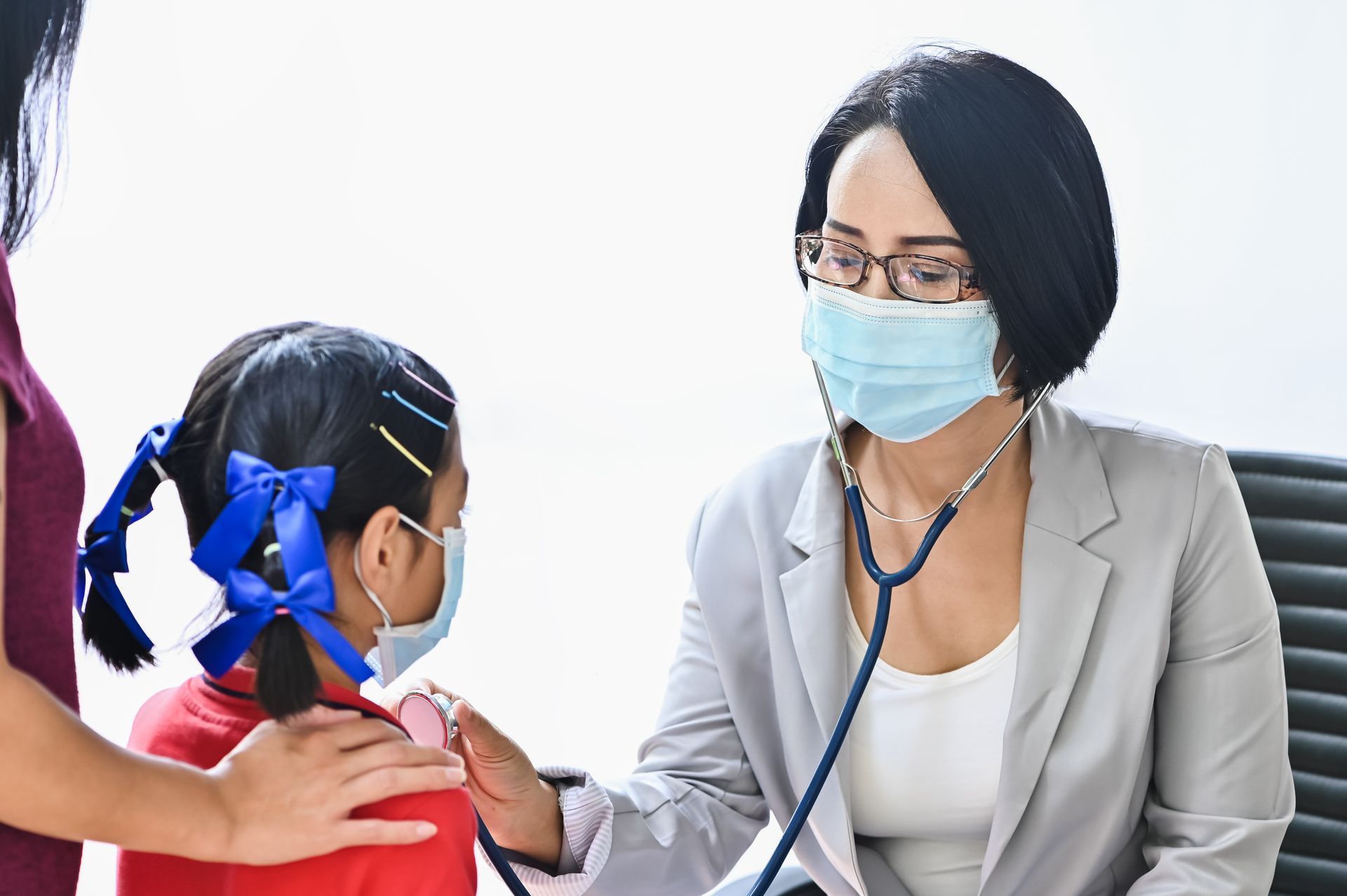
While there's no specific cure for RSV, the treatment focuses on alleviating symptoms and supporting the respiratory system. Here are some effective RSV treatment options for mild cases.
- Stay Hydrated: Encourage water, clear broths, or rehydration solutions to prevent dehydration, especially during a fever.
- Use a Humidifier: Maintain moisture in the air to soothe airways and improve breathing in dry environments.
- Manage Fever and Pain: Use over-the-counter medications like acetaminophen or ibuprofen, but consult a doctor for proper dosing in young children.
At-home care should also include monitoring symptoms closely. If symptoms do not improve or worsen after a few days, contact a healthcare provider.
Seek urgent medical care if your child or anyone susceptible to severe RSV struggles to breathe, a high fever, or bluish discoloration of the skin around the nail beds and lips. In severe RSV cases, hospitalization may be required to manage symptoms effectively. Medical professionals can provide:
- Supplemental oxygen for breathing difficulties.
- IV fluids for dehydration caused by vomiting, fever, or refusal to eat or drink.
- Antiviral medications or monoclonal antibodies for high-risk patients to reduce the severity and duration of RSV symptoms. New developments in RSV-specific treatments have shown promise in managing the disease in vulnerable populations.
Hospital care provides the vital support patients need for a safe recovery. After discharge, caregivers must stay alert for any lingering symptoms and ensure follow-up with healthcare providers.
RSV Prevention Tips
The virus is highly contagious, but a little prevention goes a long way. Try these three tips to keep your family healthy and protected from RSV:
1. Practice Good Hygiene
Proper hygiene is one of the simplest yet most effective ways to prevent the spread of RSV. Prevent RSV with these simple everyday habits:
- Everyone in your household must regularly wash their hands with water and antibacterial soap for at least 20 seconds, especially after coughing, sneezing, or touching commonly used objects. If soap and water are unavailable, use a hand sanitizer with at least 60% alcohol.
- Teach children and remind others not to touch their eyes, nose, or mouth with unclean hands.
- Clean and disinfect high-touch surfaces, such as light switches, doorknobs, toys, and electronic devices, especially if someone in the household has cold-like symptoms.
2. Reduce Exposure
Taking proactive measures to limit exposure to RSV can greatly benefit high-risk groups. Here are steps to enhance protection:
- Minimize visits to crowded indoor spaces where the virus is more likely to spread. If outings are necessary, consider going during less busy hours.
- If you or your child exhibit cold-like symptoms, stay home to prevent the spread of the virus. Similarly, avoid close contact with individuals who show signs of illness.
- For adults and children old enough, wearing a mask reduces the spread of respiratory droplets, primarily if symptomatic.
3. Get Vaccinated
Preventing RSV with vaccines and monoclonal antibodies offers valuable protection and lowers the risk of severe RSV complications for everyone, especially high-risk groups.
- For Older Adults: The CDC recommends that all adults 75 and older and adults 60–74 at higher risk of severe RSV get a single dose of an FDA-approved RSV vaccine. Currently available vaccines include Arexvy (GSK), mResvia (Moderna), and Abrysvo (Pfizer). Seniors can get the vaccine anytime, but late summer or early fall is the optimal window to ensure protection before RSV season.
- For Pregnant Individuals: The CDC advises that expectant mothers get the RSV vaccine to help protect their newborns from severe RSV illness. They can receive a single dose of Pfizer’s Abrysvo between weeks 32 and 36 of pregnancy. This vaccine is typically available in most of the U.S. from September to January.
- For Infants: Nirsevimab is typically recommended for babies born between October and March, especially right before the RSV season kicks off. If a baby is born during these months, it's best to administer nirsevimab within their first week of life. If the mother received the RSV vaccine during pregnancy, the baby may not need nirsevimab.
- For Young Children: Nirsevimab is also advised for children between 8 and 19 months old who are at a higher risk for severe RSV and are about to enter their second RSV season.
Stay Informed, Stay Prepared
Don't let RSV catch you off guard this season. Stay informed, take preventive measures, and ensure timely medical care for your loved ones. With the right strategies, you can navigate RSV season more confidently and safely.
If you or a loved one are experiencing signs and symptoms of RSV, don’t wait. Schedule a consultation with our
Los Angeles healthcare providers
to ensure timely care and peace of mind.
Can't afford to pay? Don't worry. Allmed Los Angeles offers a discounted/sliding fee schedule based on family size and income-ensuring everyone has access to quality and complete care.
Need to request Medical Records?
Send a fax to: 626 443 9646
Credentialing
credentialing@allmedla.org
Grievances
Allmed of Los Angeles Inc | All Rights Reserved.
